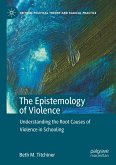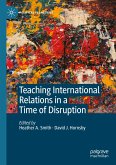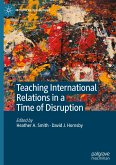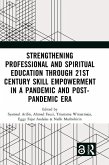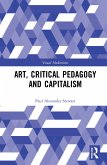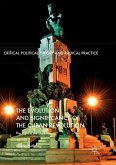The field of political science has not given sufficient attention to pedagogy. This book outlines why this is a problem and promotes a more reflective and self-critical form of political science pedagogy. To this end, the author examines innovative work on radical pedagogy such as critical race theory and feminist theory as well as more traditional perspectives on political science pedagogy. Bridging the divide between this research and scholarship on both teaching and learning opens the prospect of a critical, radical and utopian form of political science pedagogy. With chapters on Socrates, Frantz Fanon, Paulo Freire, Leo Strauss, Sheldon S. Wolin, e-learning, and a prison field trip, this book outlines a new path for political science pedagogy.
"William Sokoloff's Political Science Pedagogy: A Critical, Radical and Utopian Perspective, while grounded in a critical assessment of teaching methods for political theory, constitutes an exciting intervention into wider discussions of classroom practices relevant for both political science and the social sciences in general. ... This book represents an important corrective to the many democratic deficiencies within contemporary political science pedagogy, and should receive a wide audience." (Jason Kosnoski, New Political Science, December 6, 2022)
"In the world of global pandemic, instructors are doing a lot of thinking and talking about our pedagogy. William W. Sokoloff's book challenges us to think and talk about why we became teachers inthe first place, and what we are hoping to accomplish by teaching. Sokoloff believes that political science educators have lost sight of what our mission should be, and his book is an attempt to help us recover that mission." (Edward W. Clayton, Journal of Political Science Education, September 11, 2020)
"Sokoloff's intensity is a virtue as it serves to emphasize the importance of his subject matter, but it also proves a significant barrier to drawing in new allies who would benefit from considering his conclusions." (Steven Orr, Contemporary Political Theory, May 28, 2020)
"In the world of global pandemic, instructors are doing a lot of thinking and talking about our pedagogy. William W. Sokoloff's book challenges us to think and talk about why we became teachers inthe first place, and what we are hoping to accomplish by teaching. Sokoloff believes that political science educators have lost sight of what our mission should be, and his book is an attempt to help us recover that mission." (Edward W. Clayton, Journal of Political Science Education, September 11, 2020)
"Sokoloff's intensity is a virtue as it serves to emphasize the importance of his subject matter, but it also proves a significant barrier to drawing in new allies who would benefit from considering his conclusions." (Steven Orr, Contemporary Political Theory, May 28, 2020)


